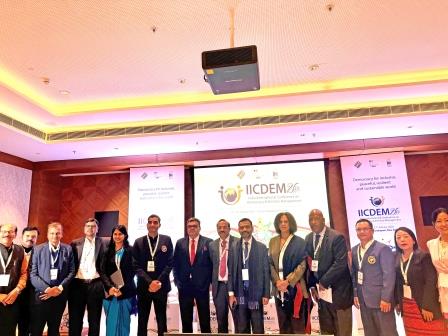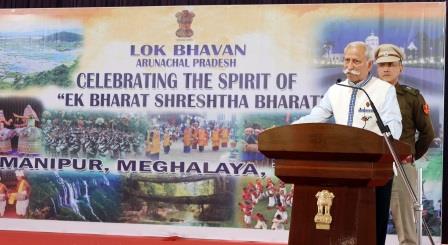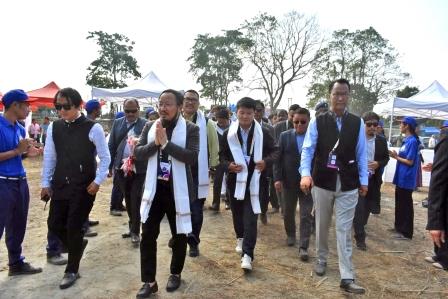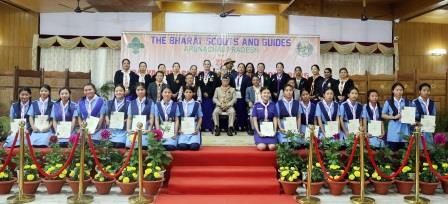-
 Team Arunachal Pradesh participates in IICDEM 2026; leads thematic…
Team Arunachal Pradesh participates in IICDEM 2026; leads thematic…
-
24hr bandh hits normal life in Lower Subansiri
-
 Lok Bhavan celebrates State Foundation Day
Lok Bhavan celebrates State Foundation Day
-
 Arunachal Yuva Samanvay 2026 underway in Namsai
Arunachal Yuva Samanvay 2026 underway in Namsai
-
DA conducts Keyi Panyor Suvidha outreach campaign
-
 Governor confers BSG Rajya Puraskar
Governor confers BSG Rajya Puraskar
-
Pongte stresses use of technology in law-making
-
 Vintage Jeep & Bike Rally commemorates end of World War-II
Vintage Jeep & Bike Rally commemorates end of World War-II
-
ARC partners with AITF, apex CBOs to lead strategic dialogue
-
Dibang Valley administration reviews progress of ongoing schemes
Clean drinking water from taps still remains a privilege for a large majority of the population. Government focus including popular thinking mostly revolves on achieving improved road infrastructure and connectivity issues in Arunachal leaving basic and most vital issues such as access to clean drinking water for all at the bottom of the list. With every road stretch completed and new air connectivity achieved there is much to cheer for indeed but sadly in the euphoria, important issues such as potable water don’t feature as a topic of discussion.
A man walked for four days covering more than 250km from Seppa to the state capital Itanagar demanding potable water for the East Kameng district headquarters. This incident shows the mirror on the ground realities across Arunachal Pradesh and the sad state of basic necessities. Numerous villages and small towns across the state have no access to drinking water and even if the government claims to have brought them under the facility, in most cases it is only in name and barely functional.
Arunachal has set December end as the new target for achieving 100 percent coverage under Jal Jeevan Mission, pleased with the current pace of work well over a year ahead of the national target of 2024. The State has achieved 38.07% as compared to the National Average of 21.07% (Har Ghar Jal Village), and Functional Household Tap Connection (FHTC) coverage of 64.54 % as compared to the National Average of 48.40 %. Approximately 53000 households are left to be connected under the FHTC, the Arunachal government said in March this year.
Jal Jeevan Mission is one of the most ambitious programmes of the Government of India envisioned to provide safe and adequate drinking water through individual household tap connections by 2024 to all households in rural India. However, in a major push, the Government of Arunachal Pradesh is aiming to achieve the target by 31st March 2023, a year ahead of the national target of 2024 to provide Functional Household Tap Connection (FHTC) across the State.
Despite the tall claims, access to drinking water still remains a privilege. The Arunachal government must not be more interested in “achievement” and in reaching the goal ahead of the national target. The focus seems to be a lot on hankering about figures but who knows how well the task is being executed at the ground level. Clean drinking water is a must for the population to have reduced burden of water-borne diseases and to have an improved life. But it also requires substantial capital investments for related infrastructure and necessitates efficient operation and maintenance for sustained and effective service delivery. If the case of Seppa, a district headquarters is anything to go by, one can imagine the condition of water facilities in remote areas.

Kenter Joya Riba
(Managing Editor)She is a graduate in Science with post graduation in Sociology from University of Pune. She has been in the media industry for nearly a decade. Before turning to print business, she has been associated with radio and television.
Email: kenterjoyaz@easternsentinel.in / editoreasternsentinel@gmail.com
Phone: 0360-2212313

